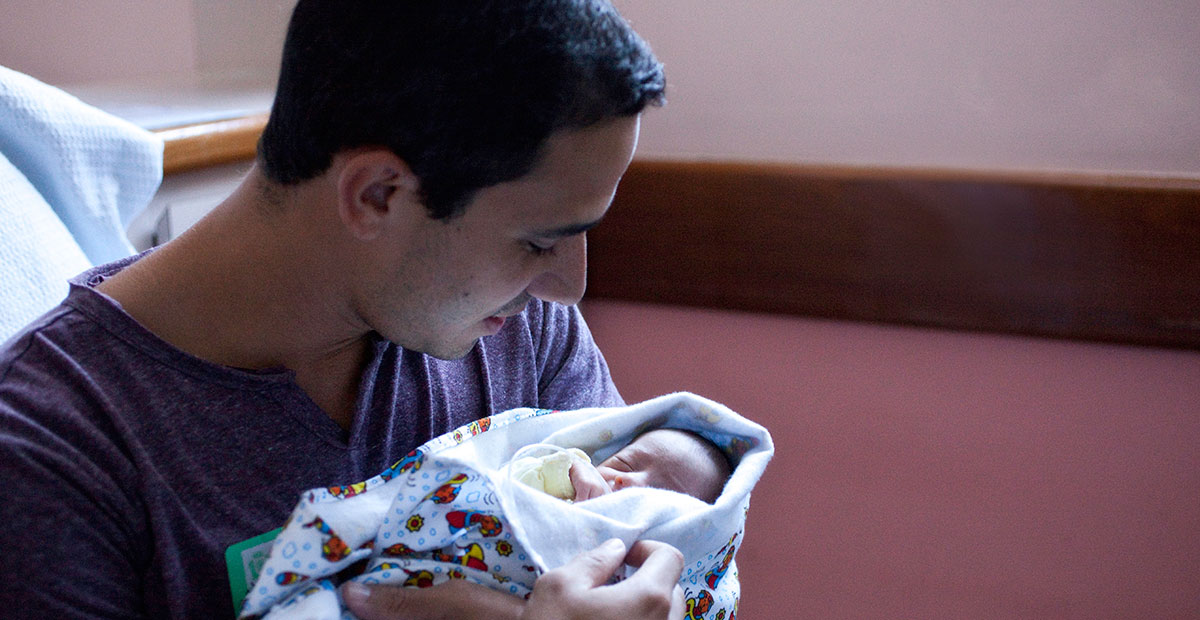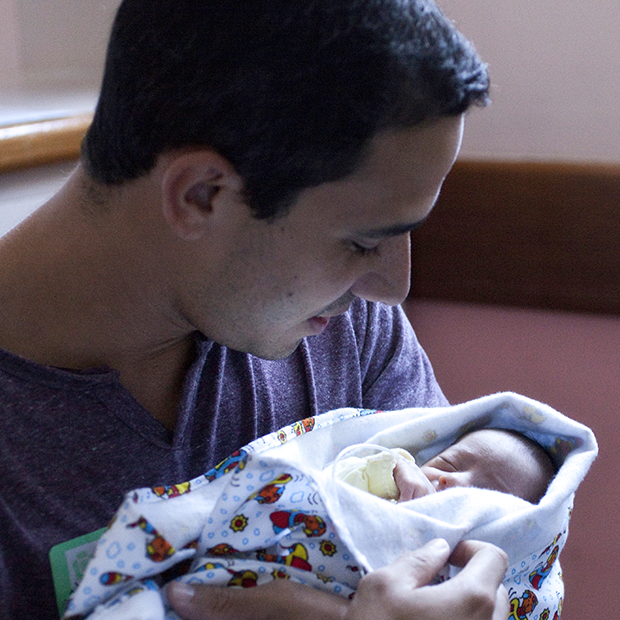
By Gary Barker
Originally posted in The Telegraph
Men: although we’re preparing to celebrate Father’s Day in many countries around the world, we have to do more.
I don’t always endear myself to my guy friends when I say things like that – but it comes from experience. Two years ago, I was part of the team that launched the first ever State of the World’s Fathers report, presenting an analysis of global research. We found that when it comes to caring for children, and in terms of helping women to achieve the lives they deserve, men really matter.
If we do our share of the care work (changing children’s nappies, doing the laundry), we make our communities and countries better places. That’s not idle talk; it’s a conclusion reached from looking at hundreds of studies. Furthermore, where men and women share household chores, and where we are closer to gender equality, murder rates are lower, and our countries are less likely to be in conflict.
Persuasive, isn’t it?
This week, we launched the second State of the World’s Fathers report, through the MenCare Campaign. I wish I could offer some good news. Our conclusions are that, as a global average, women still do about three times more of the daily unpaid care work than men. (In middle and higher income countries, that figure is slightly better: women do about twice as much in Europe and North America.)
There is still a huge deficit in terms of the childcare and housework that men pick up.
When I tell this to men, the comment that often comes back runs like this: ‘OK, but when you add in all the work we do outside the home, don’t we work just as long?’ Well, no. When you take paid and unpaid work into account, in every region of the world, women work more hours than we do.
What this means is that it will take nearly 75 years to achieve equality for women in wages compared to men’s, if we continue at current pace.
The other big conclusion from our report is that we don’t do enough in our policies and social service agencies and workplaces to support men in caregiving. Global averages of paid paternity leave are still around 6-10 days – hardly enough to encourage men to be equal partners. Workplaces in much of the world continue to look askance at fathers, and mothers, who want to take extended leave, even when those workplaces offer it. Parent training and support around the world continue to focus on mothers, which reinforces their role as the primary – or only – caregiver.
But none of us live in a global average, of course. We’re trying to figure it out one play-date, babysitter, or sleepless night at a time. Want to be part of the cause? Here’s a few things any father or male caregiver can do:
1. Lobby for equitable parental leave
Call your local councillor and MP to emphasise the need for better, longer parental leave, and show up to lend support when a bill gets introduced. By providing the same leave for fathers as mothers, we would send the message that men are just as responsible as women for caring for their children.
Good parental leave policies (for all parents) are non-transferable, and fully paid. So show up and take action: let your representatives know this issue is important to you.
2. Take parental leave if it’s offered
Too many men, and women, are still worried that taking leave will make them look like slackers. Research shows that when our employers see us all as potential caregivers, and see parental leave as normal, we remove the stigma and it becomes accepted.
If your company offers it, take it, and encourage others to take it. If you’re the boss, support it (research shows that well-designed policies improve employee retention and reduce turnover, increase productivity and morale, and reduce absenteeism and training costs).
3. Teach your sons and daughters the value of care
Boys who see their fathers do as much of the hands-on care as mothers usually grow up to repeat these same patterns. Girls who see their fathers do the care work are more independent and empowered.
We want to take our children to the office so they learn what is expected in the workplace – but let them see that we, as men, value and do the work at home just as much as we do work outside the home.
4. Let your boys cry and girls get dirty
Children learn outdated gender norms from early on, from the colors we dress them in, to the toys we provide them with, to the TV messaging they take in, and all the rest.
Parents must challenge these ideas from the beginning, teaching our sons to be emotionally expressive, and to ask for help instead of thinking they can do it all on their own; and our daughters to take action, and to not be limited by the expectations society puts on them.
5. Don’t just play, do the dirty work
The most common activity men do with their children around the world is play, which is great. It does help our children develop and thrive.
But the unspoken corollary is that mums often take on the mental load, and the dirty work. You know what to do.
6. Be involved early on
It’s pretty obvious that you want to be there at the scans, if you are expecting a child. But let’s make this part clear: you want to be there for all the appointments. Study after study shows that women are more likely to go to more visits, and to feel safer and more secure, when a supportive partner is there.
7. Think about working in the caring professions
Men are a minority of care workers around the world – that means nurses, childcare workers, primary school teachers, other health care workers. By changing this, we’ll help to speed up that 75 year equality lag , and show that we value care – not only inside the home, but outside of it too.
8. Act at home, think globally
Those of us lucky enough to have paid work and health insurance in places like the UK or the US may not have to worry about making ends meet for our families. But in the poorest countries in the world, the unequal burden on women is even worse, and support for fathers and mothers is even weaker. Support effective global NGOs like Oxfam that make unpaid care work a priority. Vote for politicians who support overseas development assistance and focus on poverty alleviation and women’s empowerment.
One last very important point
Did I mention this part? A recently study from the US found that couples with children have more sex than a) couples without children, and b) single women and men. Other studies have concluded that the couples with children who have most sex are those that also have a more equitable caregiving load.
See what I’m getting at here? And it’s not just your sex life that stands to improve from sharing the load: research shows equality in the home can have positive effects on your mental and physical health.
So, yes, men, you heard me: equality is the right thing to do. And the benefits aren’t too bad either…
